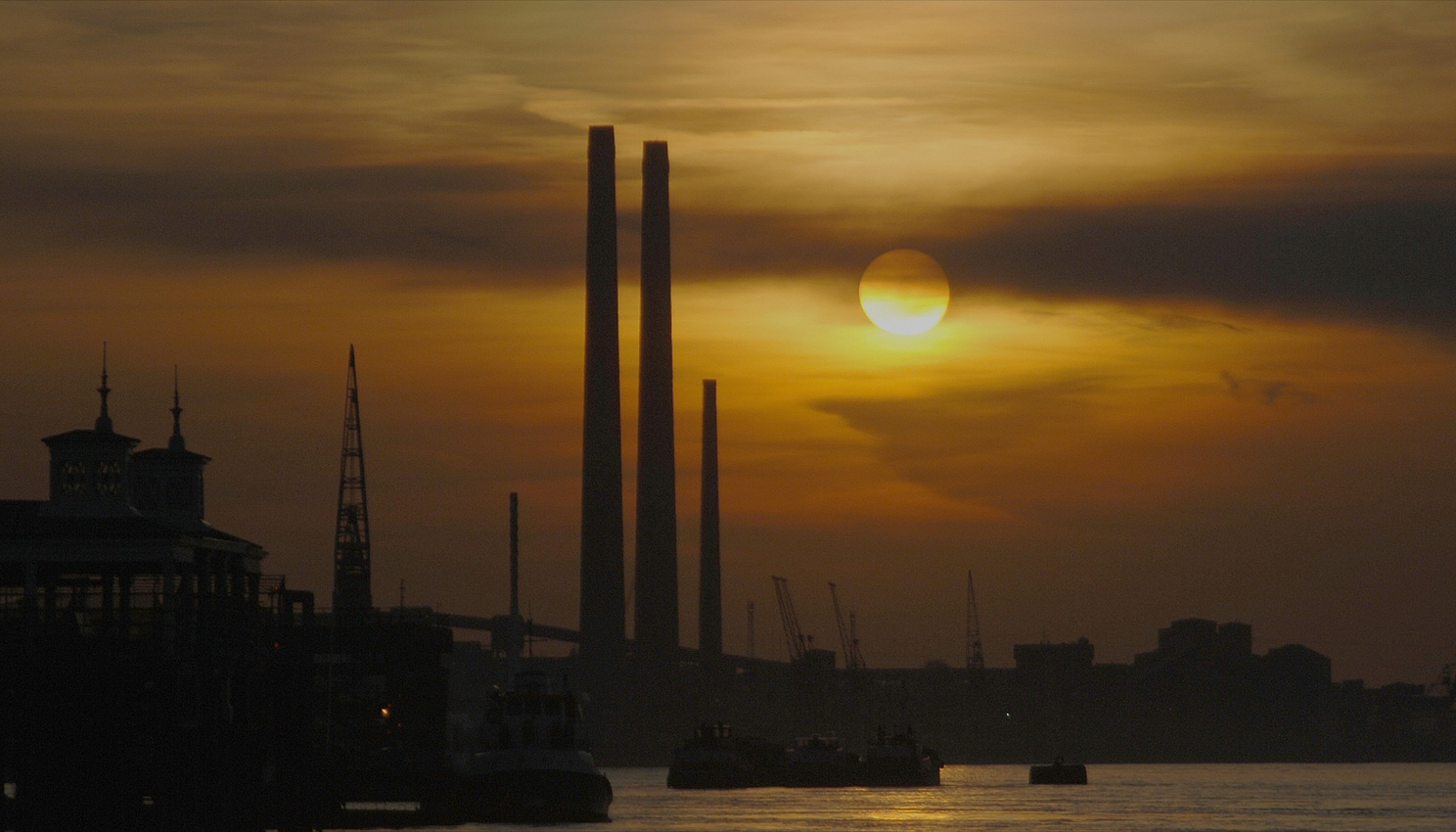The artist Steve McQueen (London, 1969), who lives in the Netherlands, will be representing Great Britain at this summer's 53rd Venice Biennial. At the last edition of this event held two years ago, he showed his film installation Gravesend/Unexploded, which was purchased by De Pont Museum and is now being presented in its project space. Gravesend is a seventeen-minute film about the mineral coltan. This is being shown in combination with Unexploded, a recording of less than one minute which McQueen made in Basra in 2003, while working in Iraq as a war artist.
Few people realize that a connection exists between their mobile phones or laptops and the violent conflict that has dominated the eastern part of the Democratic Republic of the Congo for years. The region holds rich deposits of coltan, a mineral from which tantalium is obtained: this is used in electronic equipment. Due to its sharp rise in price, the province of Kiva has been gripped with a veritable 'coltan fever'. The presence of this valuable metal not only intensifies the conflict; illegal trade in coltan also provides the means by which the conflict is financed.
McQueen has deliberately kept the violence of war, the damage to the environment and the corrupt trading practices off screen. Gravesend begins with a neutral portrayal of the production process in the sterile surroundings of a high-tech lab; this is then juxtaposed with intense shots of the physical labor required to obtain the ore. Also appearing throughout the film are nearly abstract images of the Congo River and those of a red sunset over the Thames estuary. Although the theme and the images taken from reality give the film numerous documentary characteristics, Gravesend primarily comes across as an epic poem. McQueen confronts us with ambiguous, often puzzling images. Due to his frequent use of close-ups and disturbing sounds, these images acquire a physical, almost tangible quality. This is not the first time that McQueen has opted for a socially relevent theme. The work Western Deep, from 2002, deals with gold mining in South Africa. Hunger, his first feature film which was awarded the Camera d'Or in Cannes last year, is about the hunger strike of IRA members at Maze Prison, near Belfast. McQueen's concern for the subject never results in an explicit stance, however. He keeps his focus concrete and lets the viewer pass judgment. Similarly, in Gravesend the artist refrains from telling us about the background and implications of what we see. The title allows us to surmise that history always repeats itself: Gravesend happens to be the place along the Thames estuary from which Marlow, the main character in Joseph Conrad's Heart of Darkness (1902), tells his nightmarish tale of a journey into colonial Africa, where he finds a darker side to human nature. "The air was dark above Gravesend, and farther back still seemed condensed into a mournful gloom, brooding motionless over the biggest, and the greatest, town on earth."
McQueen has deliberately kept the violence of war, the damage to the environment and the corrupt trading practices off screen. Gravesend begins with a neutral portrayal of the production process in the sterile surroundings of a high-tech lab; this is then juxtaposed with intense shots of the physical labor required to obtain the ore. Also appearing throughout the film are nearly abstract images of the Congo River and those of a red sunset over the Thames estuary. Although the theme and the images taken from reality give the film numerous documentary characteristics, Gravesend primarily comes across as an epic poem. McQueen confronts us with ambiguous, often puzzling images. Due to his frequent use of close-ups and disturbing sounds, these images acquire a physical, almost tangible quality. This is not the first time that McQueen has opted for a socially relevent theme. The work Western Deep, from 2002, deals with gold mining in South Africa. Hunger, his first feature film which was awarded the Camera d'Or in Cannes last year, is about the hunger strike of IRA members at Maze Prison, near Belfast. McQueen's concern for the subject never results in an explicit stance, however. He keeps his focus concrete and lets the viewer pass judgment. Similarly, in Gravesend the artist refrains from telling us about the background and implications of what we see. The title allows us to surmise that history always repeats itself: Gravesend happens to be the place along the Thames estuary from which Marlow, the main character in Joseph Conrad's Heart of Darkness (1902), tells his nightmarish tale of a journey into colonial Africa, where he finds a darker side to human nature. "The air was dark above Gravesend, and farther back still seemed condensed into a mournful gloom, brooding motionless over the biggest, and the greatest, town on earth."
